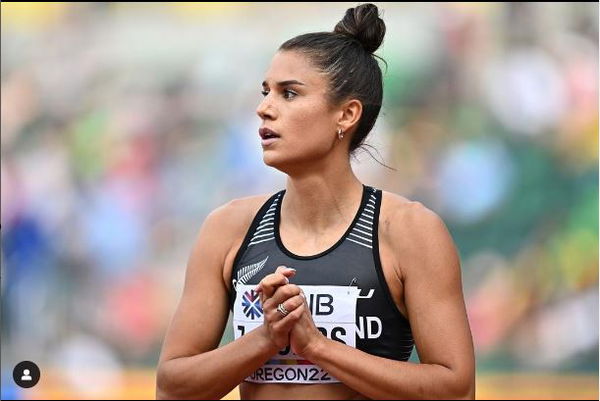

Zoe Hobbs has become a part of New Zealand’s sporting history. She is the first woman sprinter in the country, to qualify for the Olympic 100 m in 47 years. The last female athlete from New Zealand to participate in the event was legendary sprinter, Sue Jowett, in 1976. Hobbs qualified by winning the event at the Continental Tour Challenger meets organized in Switzerland. She recorded her best time of 10.96 seconds and then finished the final in 11.13 seconds.
The athletics star is stoked by her achievement and reportedly said it took a massive weight off her shoulder. The 25-year-old sprinter was aware of the fact that she was carrying the hopes and expectations of her country when she departed for Switzerland.
ADVERTISEMENT
Article continues below this ad
Zoe Hobbs’ Journey to Olympic Qualification
Hobbs has been training for months for precisely this moment. She wanted to prove herself and achieve the best time early in the qualification period. This recent lead has helped the athlete incredibly because she doesn’t need to watch out for her time all season. She is now free to dedicate herself to training for the World Championships. Hobbs finished the heat well ahead of first runner-up Gina Bass the contender from Gambia. Despite not winning, Bass is happy to have recorded her best time.

Hobbs shared a video on Instagram with the caption, “We did it,” to inform her fans of her qualification. According to ESPN News, the sprinter could not believe she had recorded her best time. Hobbs thought the glaring sun and the strong wind must have kept her from performing her best. Ever since the Diamond League season began, Hobbs has consistently improved her performance, and now the nation trusts her to earn a medal in the 100 m event at the 2024 Paris Olympics.
ADVERTISEMENT
Article continues below this ad
A New Hope to Redeem New Zealand’s Sprinting Legacy
The first woman to compete in the Olympics from New Zealand was Norma Wilson. She participated in the 1928 Olympic Games held in Amsterdam and finished fifth in the semifinal round. Then it was Thelma Kench who came sixth in 1932, followed by Margaret Stuart, who fared better, placing third in her heat in 1956. 1964 New Zealand had two contenders in the 100m event, but both athletes were eliminated in the second round. Then there was a gap of twelve years before Jowett got the chance.
ADVERTISEMENT
Article continues below this ad
Now, after forty-seven years, Zoe Hobbs has a golden opportunity to rewrite the narrative and revitalize New Zealand’s women’s legacy in the Olympic Games. Given her latest performance, fans have every reason to be hopeful.
Watch This Story: World Pole Vault Champion Shares a Heart-Touching Update After Months of Struggle With Mental Health Issues
ADVERTISEMENT
ADVERTISEMENT
ADVERTISEMENT
ADVERTISEMENT

